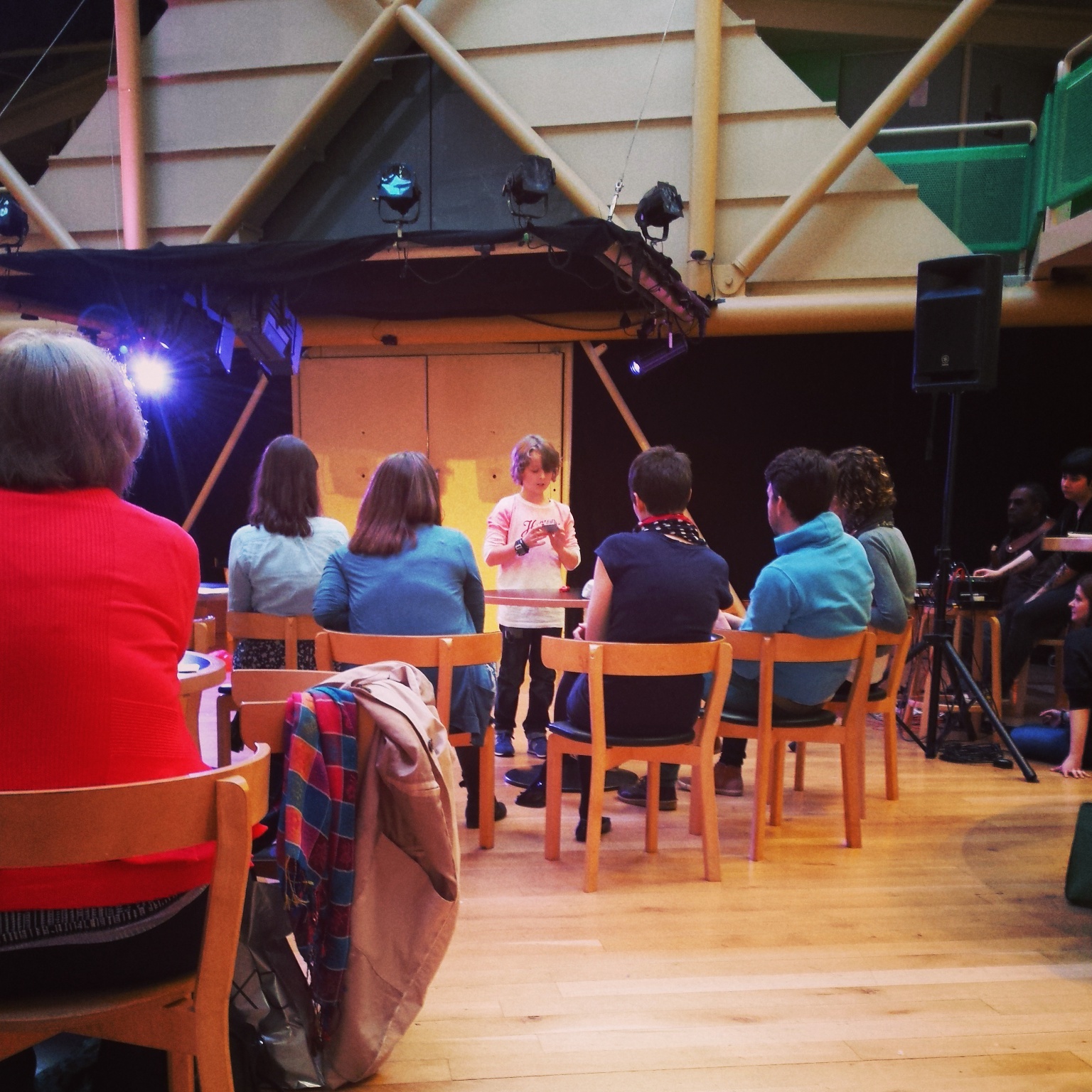Feeling that the tales of real modern families are seldom told in the theatre, Liz O’Neill Artistic Director and CEO of Z-arts has developed a performance project with some fearless writers.
In 2014, five different writers got up on stage at Z-arts in Manchester to tell their own deeply personal stories. Had they been in any way daunted by the prospect then any trace of hesitance was subdued as they reflected bravely and honestly on how their family circumstances had shaped and continue to shape their identities. Family life isn’t easy, families don’t come in the neat packages you read about in most books and family theatre does not always have to be about escaping realities.
This is what Family Matters is all about. It’s a research project in collaboration with fearless writers from unconventional families into what constitutes ‘family’ in modern society. As the artistic director of a venue that specialises in family arts experiences, I welcome many brilliant, innovative theatre companies who put children’s education and fostering a lifelong love of performance at their hearts. It helps me to keep the faith that theatre has what it takes to adapt to the changing dynamics in society. But, being honest with ourselves, can we say that the industry caters as well for gay parents, children raised by their grandparents and siblings with different biological parents? Are they likely to leave a performance and say “That was for me”? Arts Council England’s Taking Part survey told of declining participation in theatre and dance among young children, especially from ethnic minority backgrounds, so something is not right.
Can we say that the industry caters as well for gay parents, children raised by their grandparents and siblings with different biological parents?
In undertaking Family Matters my intention was to take the first step towards a movement that unburdens us of the view, perhaps held on both sides of the stage, that family theatre means pantomimes, school visits and little else. In working with the writers on these terms, I provided them with no brief other than to prepare a monologue and write about something personal that mattered to them. As it turned out, my responsibility to them was equal to theirs towards the project, not least in the way we promoted their work. It may sound obvious, but when the emotional stakes are so high everyone needs to tread carefully, really looking out for each other. Is this why theatre-makers often forgo the challenge in favour of an easier route? Just the wording of a press release or a message on social media could trigger a collapse in trust, an adverse reaction from the audience members that mattered the most (their families) and cause upset. It was made quite plain to us when we did get some little things wrong, why it was so important to get it absolutely right. Respect is the key, from the essence of the initial idea to the end-result. The end-result was a group discussion that followed the final performance in November and some of the audience feedback was poignant, insightful and rousing.
Whether a performance is suitable for children is often subjective. I was challenged on why the performances were given a 14+ age recommendation which made me consider why I and not the parents had decided that it wasn’t appropriate for younger children. Nina Hajiyianni, Artistic Director of Action Transport Theatre, spoke out: “Children are ready to be challenged. They can cope with complex ideas. Don’t do a disservice to them. We need to be brave with our casting, our content and our experimentation with theatrical ideas.” While we need to be responsible, ensuring young minds are nurtured rather than shocked into adulthood, perhaps young people would be more stimulated in our theatres by being challenged and then helped to rationalise what they feel about the experience?
A series of monologues is one thing, but the next step is to work out how we translate these, occasionally difficult subjects to become exciting theatre that engages young people properly. We are being welcomed to the Family Arts Conference to perform Family Matters the night before the conference gets into full swing. Its support for our burgeoning movement, bringing it up the agenda for writers, directors, producers and venues will hopefully see more green shoots start to appear.
Mari O’Neill, Family Arts Campaign Manager, says: “The make-up of a family has implications on how we the arts sector communicate with that family, what arts activities we present, and how we make sure those activities are accessible. Family Matters encapsulates the diversity of the modern family through stories both for families and about them so can help us keep pace with changes in family life.”
So, everyone is in agreement: we need to work harder to tell stories that relate to modern family life. With the support of the Paul Hamlyn Foundation, Family Matters rose to the challenge of telling stories many see as unorthodox, but are more normal than we think. I think we all feel better for it and while we are deciding where to take it next, I hope more people will be encouraged by what our writers have achieved to do something similar.
This article was written by Liz O’Neill, chief executive of Z-arts, and first published in Arts Professional in March 2015.

